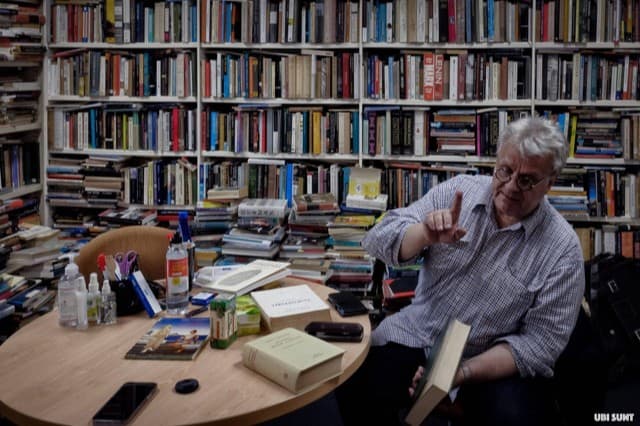
Professor Vrasidas Karalis, from the University of Sydney, will present an online lecture entitled “Did the Greek Revolution of 1821 really happen? Myths, counter-myths and historical knowledge’, on Thursday 4 March 2021.
The event is a part of the 2021 Greek History and Culture Seminars series, offered by the Greek Community of Melbourne.
The significance of the Greek Revolution of 1821 has never been questioned and all historiographical tradition persistently explores the realities around its impact of modern Greek nationhood. Recently a debate has erupted amongst historians about the contribution of the Revolution to the creation of the Greek state and nation.
Originally this seminar was planned for the mezzanine level of the Greek Centre however the University of Sydney has placed interstate travel restrictions on its staff. It will only be delivered online.
Certain historians claim that it was the ultimate outcome of a long process starting with the Fall of Constantinople in 1453 and others suggest that it was due to the influence of the French Enlightenment and French revolution. The debate implies the underlying political conversation about the construction of the Greek nation and its historical identity.
The paper wants to address such vexing issues and attempts to propose a solution to questions of constructivism vis-à-vis historicism in the knowledge and interpretation of the past. The Greek revolution is the ultimate example and field of knowledge that could be used as a template to explore the perception of the history both as narrative and lived reality. The paper also discusses some rather overlooked interpretations of the Revolution with special emphasis on Arnold Toynbee.
Professor Vrasidas Karalis
Professor Vrasidas Karalis holds the Chair of Sir Nicholas Laurantos in Modern Greek and Byzantine Studies at the University of Sydney. He works in the area of Greek Cultural Studies since the Byzantine and Modern periods.
He has published extensively with special emphasis on Byzantine historiography, Modern Greek political life, Greek Cinema, Balkan culture, European Union and Greece. He has translated Patrick White’s Voss and The Vivisector, as well as well Michael Dransfield’s poems into Greek. He has also translated modern Greek poetry into English, by Nikos Karouzos, Kiki Dimoula, Andreas Angelakis etc. He is the editor of Modern Greek Studies (Australian and New Zealand.)
His main publications in English include, A History of Greek Cinema (Continuum 2012), Realism in Greek Cinema (I.B. Tauris, 2017), Recollections of Mr Manoly Lascaris (Brandl & Sclesinger, 2007), The Demons of Athens (Brandl & Schlesinger, 2013), Reflections on Presence (re.Press, 2016) and The Glebe Point Road Blues (2020). He has also edited the collections Cornelios Castoriadis and the Project of Radical Democracy (2013), Martin Heidegger and the Aesthetics of Being (2008), Power, Justice and Judgement in Hannah Arendt (2012).
He has been the recipient of awards in translation and nominations for his critical work. He is awarded the Federation Medal of Australia in 2003. He is currently working on the work of the filmmakers George Miller and Theo Angelopoulos.
For more information, please call +61 3 9662 2722 or email: info@greekcommunity.com.au
